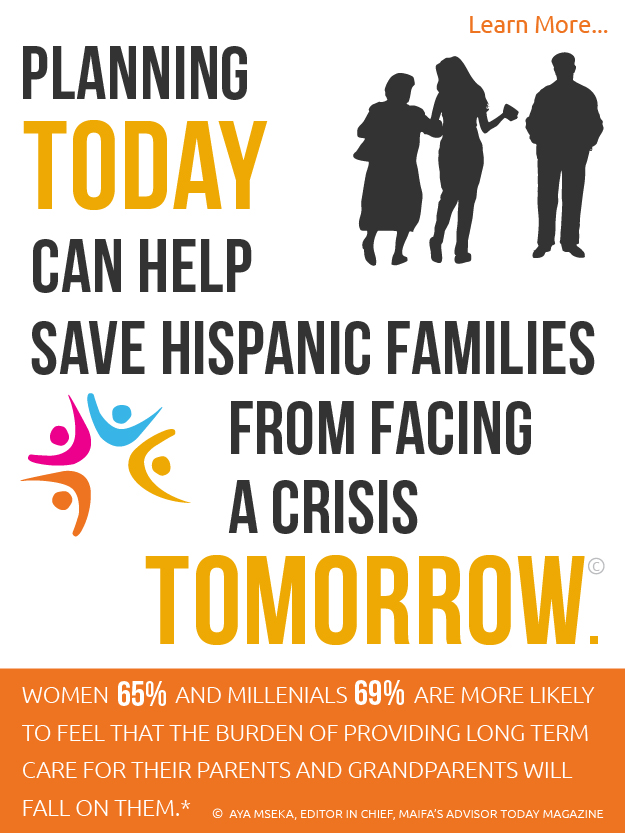
12 Pieces Of Postpartum Mental Health Advice From Moms Who've Been There
08/05/2021 06:00AM | 2253 views
The birth of a child is billed as a time of immense joy, love and excitement. But for many moms, the months — and sometimes years — that follow can also be a period of mental and emotional struggle.
Between the sleepless nights, fluctuating hormones, responsibility of caring for a tiny human and the stress of a major life transition, early motherhood can be difficult and overwhelming.
As many as 50 to 75% of new moms deal with the “baby blues” post-delivery, which may include mood swings, crying spells, anxiety and trouble sleeping — symptoms that typically resolve within a couple of weeks. Others may deal with longer-lasting, more severe mental health challenges, such as postpartum depression, postpartum anxiety or postpartum OCD. Even women who do not meet the diagnostic criteria for a mood or anxiety disorder can still have a tough time adjusting to motherhood.
We asked moms who’ve been through the postpartum period what helped them during that time and what they wish they had known in hindsight. Below, they share their best advice:
1. Before giving birth, book a few postpartum therapy sessions.
“An average patient will usually see her doctor six to eight times during the third trimester of pregnancy, whereas postpartum — or the fourth trimester — it is reduced to literally just one visit. I would advise all pregnant women to pre-schedule appointments with a therapist for support in the months after giving birth, as well as to do checkups with their general physician at least once every six weeks for the first few months.” — Sara Ahmed, writer at Sugar Land Sara
2. Figure out if you’re at risk for perinatal mental health issues ahead of time.
“I didn’t realize that I had everything stacked against me in so many ways. Childhood trauma: check. Sudden death in the family: check. Loss of a job: check. Little to no support during and after pregnancy: check. Knowing the risk factors would have allowed me to build better supports around me.” — Jamina Bone, illustrator at Momming With Truth
3. You won’t love every aspect of motherhood, and that’s perfectly normal.
“You will have a range of feelings and thoughts about motherhood. You will have a mix of feelings, including excitement, curiosity, regret, doubt and indecision. These are all expected, typical and common for most moms. There is no need to shame yourself for having these emotions.
“People will tell you that you should be thankful that you’re a mom. But then you’re left to assume that you should feel bad if you don’t always enjoy this new role. That’s ridiculous! You can feel both exhaustion and gratitude. Both of these experiences can exist. Motherhood isn’t always a pleasant experience. That’s OK too.” — Ann-Louise Lockhart, pediatric psychologist and parent coach at A New Day Pediatric Psychology
4. Choose a couple trusted sources for baby information and tune out the rest.
“Early on in my motherhood journey, I relied a little too much on frantic midnight internet searches for my endless new parenting questions. Unfortunately, blog posts and articles rarely offer concrete help and mostly just quote studies. Mom forums are worse! Each question is usually answered by a dozen or more people with differing — and often judgmental — opinions.
“Two months in, my anxiety was out of control. Eventually, I decided to limit parenting-related input to my pediatrician, my cousin (a few years ahead of me in terms of parenting), and one well-respected mom blog. It was the best decision I made as a parent. No more lost nights going down a black hole spiral to determine if something was ‘normal.’ I highly recommend anything to avoid doing that ever again.” — Gina McMillen, illustrator at @ginsasdrawingclub
5. You don’t need to do it all alone. Accept help early on.
“I felt obligated to do it all which led to a lot of resentment and confusing feelings toward my little ones. ‘You must be so blessed’ became words I cringed at. Yes, my husband was a good father in that he participated in our kids’ lives (insert eye roll for a society who glorifies any contribution from a father). Yes, my kids were healthy. Yes, I had the privilege of being able to afford staying home. But all of these facts didn’t help me move forward. Having support did.
“After several difficult conversations, my husband started taking on half the nightly feedings because I wasn’t sleeping. He let me sleep in. I went on an out-of-town ‘mom-cation’ with friends and came back to kids going to their father for their needs. We hired a sitter and allowed a friend to watch the kids. Unfortunately, I didn’t accept help until late.” — Bone
6. Don’t underestimate the importance of taking some time for yourself.
“Don’t ever be afraid to ask for help. Even if it’s getting a friend or relative to babysit for a short while just so you can have a warm bath. Remember to take time for you and check in with yourself every day. As a new mom, you are adjusting to a huge change in your life, so be gentle with yourself. There will be good days and bad days, and that’s OK.” — Debbie Tung, cartoonist and author of “Happily Ever After & Everything In Between.”
7. Trust your own instincts and take others’ input with a grain of salt.
“I became a first-time mom at 22, and the well-meaning advice felt noisy and overwhelming to me. I wish someone had just told me to trust my instincts. For some people, sleeping while the baby sleeps is what they need, while others need to sit with a coffee in silence or unload the dishwasher. There’s no right or wrong way to live out the postpartum period — there’s just your way.” — Brianna Bell, journalist
8. Nurture your identity outside of being a mom.
“This is super important to me, because it’s so easy to lose yourself when you become a mom. It’s easy to wrap up your entire identity into this tiny baby who demands so much of your time, energy and attention. Although this new role is important and your baby relies on you for all of their basic needs and more, it is also extremely important that you continue to care and nurture yourself as well.
“For me, this meant in the first few weeks of bringing my baby home, before my husband left for work, I made sure to get up, get showered, get dressed and get cute before he left for the day. Why? Because it made a difference for me. I sent the message to myself that I matter that much. It also made it easier to leave the house with the baby if I needed or wanted to without giving it any second thoughts. Giving yourself these messages early and often will come in very handy throughout your parenting journey. It is also an important message to give to your kids about self-care, balance and boundaries.” —Lockhart
9. Try not to compare yourself to other moms.
“A lot of new moms spend their time scrolling social media while trapped on the couch nursing or bottle-feeding their babe, or at least I know I did. It can be a struggle to not compare yourself to Insta-moms or even friends who want to commiserate with you about their post-babe days. Trust in yourself to be doing the right things for yourself and your baby.” — Bell
10. Unfollow social media accounts that make you feel like crap. Focus on connecting with people IRL instead.
“Being a mom in the time of social media means a constant barrage of images of blissful and perfectly styled parenting moments. It’s all fake. Every photo on social media represents only a moment in time. Influencers don’t show the ugly mess, the struggle and the raw reality of it all. Even the posts that pretend to show the mess or the hardship feel disingenuous — like, ‘look at my unfiltered, messy life’ and cut to four toys on a pristinely polished hardwood floor.
“Unfollow any accounts that make you feel inadequate during these first months because the truth is you are not. Instead, foster as many real-life connections as you can and of course keep following those social media accounts that make you smile, feel connected and bring you joy.” — McMillen
11. Give yourself a lot of grace.
“The most important advice I’d give to new moms is to lower their expectations significantly and to allow some grace for themselves. It’s never going to be as hard as it is the first time around and unreasonable expectations of myself caused a lot of unnecessary suffering.” — Ahmed
12. If you’re struggling, reach out for support.
“It seems obvious, but I know so many moms suffer in silence. You are absolutely not alone.” — Bell
Responses have been lightly edited for clarity and length.











Post your Comment
Please login or sign up to comment
Comments